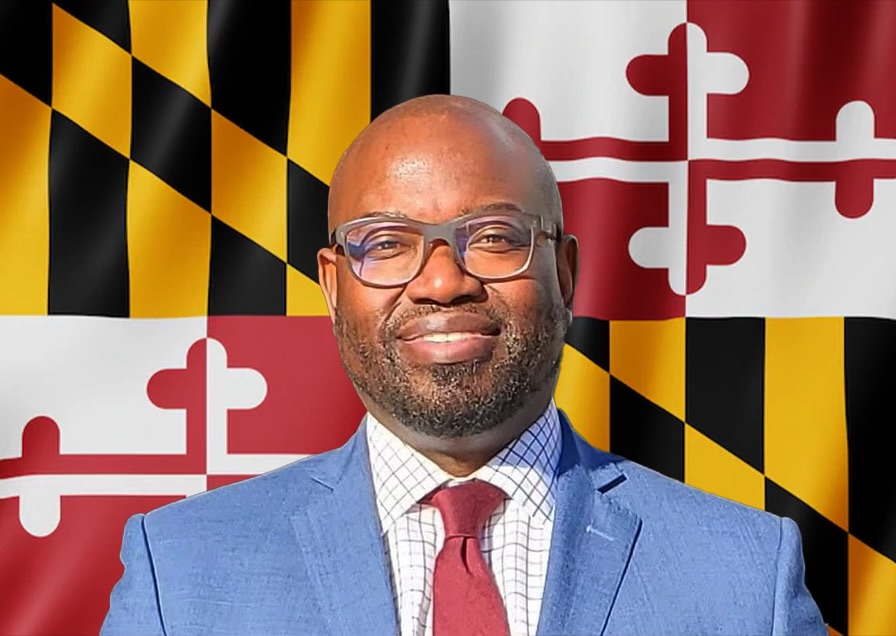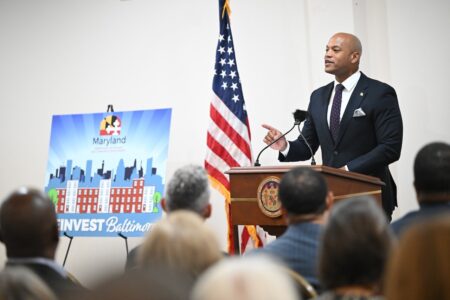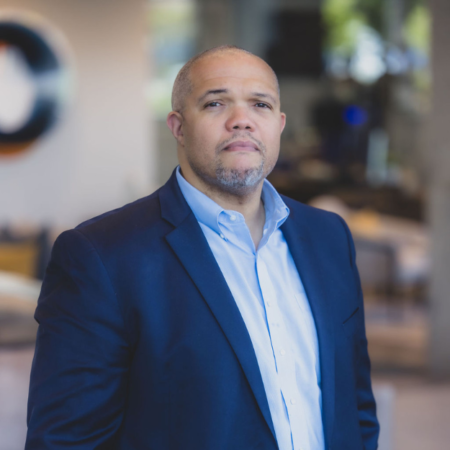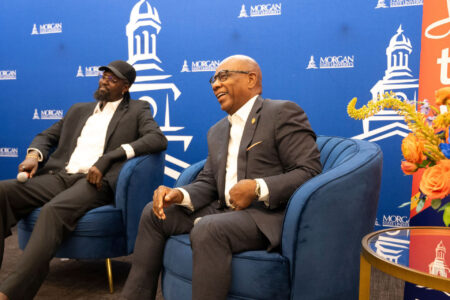(BALTIMORE – April 24, 2024) – Chad Williams has 25 years of experience in the affordable housing, community planning, economic development, and banking sectors. In the past 15 years, Chad has led public-private partnerships to improve land use redevelopment for de-concentrating housing poverty, neighborhood transformation, mixed-use economic development, and transit-oriented development in urban communities.
He started his career with the Council of the District of Columbia, Marshall Heights Community Development Corporation, and City First Bank. In these roles, he excelled in communicating and addressing policy issues on affordable housing, community planning, and economic development to civic associations, advocacy groups, and government officials.
As a philosophical thinker on community development, he believes neighborhoods are planned better as transit-oriented communities that use green space for community farms and natural resources to produce clean energy that will save residents on transportation, food, and utility costs while creating economic development opportunities for businesses and residents. He advocates that urban developments should be mixed-use and mixed-income to reduce the concentration of poverty while providing similar social amenities found in affluent communities along with supportive community-based programs that eliminate social determinants through a collaborative network of public-private partnerships that create access to health care and economic opportunities.
His research has included producing a study at the Council for Urban Economic Development demonstrating various alternative financing options that real estate developers could use to construct large-scale mixed-use developments in urban jurisdictions. This study guided developers in structuring municipal bonds, tax credits, private equity, philanthropic, federal, and state resources to revitalize communities through an empowerment zone model that is inclusive of community engagement, trans-oriented, and eco-friendly.
During his career, Chad has successfully practiced his development theories by leading public finance and project management of large-scale mixed-use economic development projects such as the Coltsville National Historical Park in Hartford, CT; American Tobacco Historic District in Durham, NC; Mission Bay and Bayview-Hunters Point Waterfront District in San Francisco, CA; and the Historic Westside Marble Manor and Moulin Rouge Casino and Hotel site in Las Vegas, NV.
His two most impactful national accomplishments have been managing the implementation of a HUD affordable housing stabilization pilot program to rehab 10,000 single- and multifamily housing units in 21 of the largest urban jurisdictions for healthy home remediation, and leading project teams restructure $1.3 billion in financing for approximately 1,500 troubled Project-based Section 8 properties under the FHA Multifamily Mark-to-Market Program to maintain housing affordability for nearly 75,000 units.
He has also accomplished international work creating and launching the implementation of a $600 million comprehensive strategic urban development plan for the East Port of Spain Development Company to revitalize communities in its redevelopment zone on behalf of the Ministry of Housing and Urban Development with financing from the Central Bank of Trinidad and Tobago.
Chad currently serves as the Executive Director of the West North Avenue Development Authority. The Authority is a new Maryland independent economic development agency that coordinates State and City planning and development activities for efficiency and effectiveness; conducts statistical research and analysis; markets real estate development opportunities; partners with neighborhood associations on designing community plans; and provides grants and loans to “fund” and “initiate” housing, economic, and transportation development activities in Baltimore City without displacing legacy residents. In this position, Chad statutorily reports to the Governor, Maryland General Assembly, and a Membership Board composed of appointed officials leading housing, economic, and transportation agencies in the State and Baltimore City.
Prior to his appointment as Executive Director of the West North Avenue Development Authority, Chad served as Executive Director of the Southern Nevada Regional Housing Authority in Las Vegas, NV leading a $150 million annual operating authority with 240 employees, a portfolio of 44 public and affordable housing communities with 3,500 units, and 12,000 Housing Choice Vouchers.
Chad received the Charles L. Edison Award in Public Housing from both Democratic and Republican Nevada congressional members for his bipartisan innovative approaches towards redeveloping public housing communities into mixed-use residential, commercial, retail, educational, and recreational sites across the Las Vegas Valley, reducing the public housing and Section 8 waitlist, and accelerating economic opportunity transition for work-eligible residents into full-time employment, business entrepreneurs, and homeowners.
A native of Washington D.C., Chad graduated from H.D. Woodson Sr. High School and the University of the District of Columbia with a Bachelor of Arts in Political Science with concentrations in philosophy, urban policy, and community planning. He is also a graduate of Rutgers University Center for Government Services concentrating on Public Housing and Municipal Redevelopment, and additionally educated at the Frankfurt School of Management specializing in Real Estate Development and Finance.
In public service to the Baltimore-Washington, D.C. region, Chad has served as a member of the National Capital Region Transportation Planning Board and co-chaired a Maryland National Capital Park and Planning Commission committee to develop a ten-year strategic plan for building mixed-use affordable communities around transit hubs along the WMATA Purple Line. However, he is immensely proud of his service as a member of the University of the District of Columbia Board of Trustees, his alma mater.
In 2010, as the executive director of a housing advocacy organization, he partnered with several other nonprofits, municipal governments, and businesses to push the Maryland State Legislature to enact the nation’s first mortgage foreclosure prevention law for which he wrote a nationally recognized commentary in the Washington Post.
Chad is the author of a research article, “Barry Farm: A Community Denied Hope.” The publication examines the political, social, and economic factors that impacted the Barry Farm Freedmen neighborhood and public housing community in Washington, D.C., from 1867 – 2017.
Chad’s life mission is to eliminate systemic issues facing disadvantaged urban neighborhoods by using public finance as investment partnerships with community development financial institutions, nonprofit community development organizations, and mission-driven private developers to create equitable economic growth and quality affordable housing options.
In his free time, Chad enjoys mountain bicycling, hiking, camping, playing chess, sailing, and watching Formula 1 races. He is also a long-time collector of Batman comic books.
His favorite books on change management and urban planning and development theories are “Winnie-the-Pooh on Management” and writings by Peter Drucker and Jane Jacobs.
Chad grew up in the Barry Farms and East Capital Dwellings public housing communities in Washington, D.C. playing basketball at Watts Branch Park. He is well known in D.C. as the University of the District of Columbia student leader who led the most significant nonviolent protest in D.C. local history against Congressional Republican proposed cuts to education, social services, and labor rights through the “Save UDC/DC Protest” in March 1996. The civil justice action received national coverage by closing down the entire city for days while bringing attention to D.C.’s quest for full representation in Congress.
Chad currently lives in the Poppleton neighborhood in Baltimore, MD.











